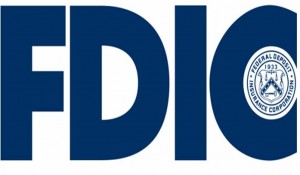 The FDIC recently revised an advisory to banks naming payday lenders as high-risk merchants according to Bloomberg. The list received a host of complaints, as it seemed to imply that banks should not do business with those on the list. However, the FDIC said that was not the intention of the list and it was leading to “misunderstandings” with the banks it supervised.
The FDIC recently revised an advisory to banks naming payday lenders as high-risk merchants according to Bloomberg. The list received a host of complaints, as it seemed to imply that banks should not do business with those on the list. However, the FDIC said that was not the intention of the list and it was leading to “misunderstandings” with the banks it supervised.
The FDIC clarified that “it is FDIC’s policy that insured institutions that properly manage customer relationships are neither prohibited nor discouraged from providing services to any customer operating in compliance with applicable law.” In other words, banks can work with any other businesses, including payday lenders, that are following the law.
What is the FDIC?
The Federal Deposit Insurance Corporation (FDIC), a United States government corporation created by the Banking Act of 1933, insures deposits in banks up to $250,000. This keeps the banks stable as depositors know the first $250,000 deposit is insured if a bank fails.
The FDIC also examines and supervises more than 4,500 banks, as well as making sure they comply with consumer protection laws, such as the Fair Credit Billing Act, the Fair Credit Reporting Act, the Truth-In-Lending Act, and the Fair Debt Collection Practices Act.
The FDIC has also been helping the Department of Justice carry out “Operation Choke Point.” This initiative, intended to fight fraud by cutting off access to payment systems for illegal businesses, also affected businesses that acted lawfully.
An article on bizjournals.com pointed out that “legitimate businesses in industries on the FDIC list have complained that they’ve had their banking accounts terminated because banks were wary of heightened government scrutiny of their industries.”
Why This Revision Is Important
The FDIC’s change is important for two reasons. First, it supports payday lenders (and all businesses) that follow federal and state law, but not those operating illegally. This is a step in the right direction. As of late, many consumers have read into the weeding out of illegitimate lenders and taken it to mean that all payday lenders are corrupt. This is unfair to those who have built their lending businesses on providing a needed service and complying with current laws.
In fact, Richard J. Osterman Jr., the FDIC’s acting general counsel, said the list was a means to instruct banks on businesses that needed to be looked at more closely, but if the banks and third-party payment processors were obeying the law they would “have nothing to be concerned about.”
Good for him. Our nation is built on laws, and the laws – not arbitrary FDIC advisories should govern our citizens and businesses. If laws need to change, lawmakers should make those changes according to the processes put in place to do so. In the meantime, businesses obeying the law should be free to work with any and all other legal businesses.
How to Know If a Payday Lender Is Legal
However, that doesn’t mean consumers can trust every business that says it is legitimate. They most also perform due diligence so they can act wisely when seeking payday loans.
If you need a payday loan for a financial emergency, make sure the lender you accept a loan from is licensed in your state. To do this, contact your state’s banking regulator or attorney general and verify the lender’s status before you sign any paperwork or take money.
You can also go to http://www.ncsl.org/research/financial-services-and-commerce/payday-lending-state-statutes.aspx to find the availability and limits of payday loans in your state.
Comparing Loans Is the Best Way to Protect Yourself
By using a loan comparison service you create a situation where multiple lenders compete for your business. This allows you to review all your loan offers to find the ones that are in your best interest, meaning the lowest rates and best terms. You can also weed out the ones that seem shady to you – or have unattractive rates and terms.
After you narrow done your choices, you can research the top three or four to see which lender has the best reputation. This can save you time, money and hassles in the end.
Freedom is a wonderful thing. It’s also a double-edged sword, meaning it can be good or bad. Businesses should be free to charge what they want and you, as a consumer, should be free to go elsewhere if you don’t like the costs or the way you get treated. Remember, you have choices and you are in control even when it comes to borrowing money with bad credit.
So compare lenders and choose the loan that makes the most sense to you.


